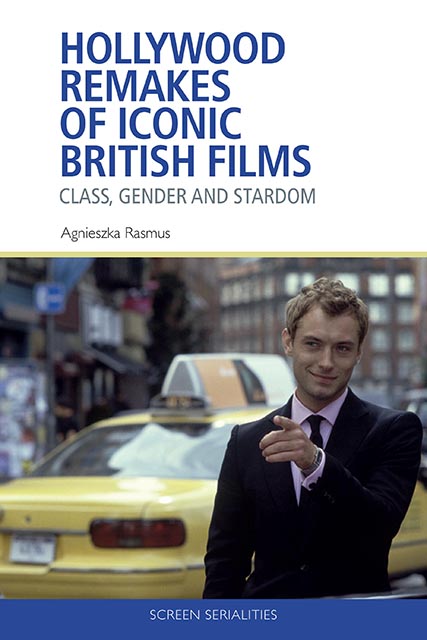Book contents
- Frontmatter
- Contents
- List of Figures
- Acknowledgements
- Preface
- Chapter 1 Remaking Iconic British Films of the 1960s and 1970s
- Chapter 2 From British Working-Class Gangsters to Hollywood Heroes: The Italian Job and Get Carter
- Chapter 3 Gender, Stars and Class Wars: Alfie and Sleuth
- Chapter 4 From Devilish Masters to Evil Dames: Bedazzled and The Wicker Man
- Chapter 5 Remaking, Cultural Exchange and Personal Legacy: The Limey
- References
- Index
Chapter 5 - Remaking, Cultural Exchange and Personal Legacy: The Limey
Published online by Cambridge University Press: 10 August 2023
- Frontmatter
- Contents
- List of Figures
- Acknowledgements
- Preface
- Chapter 1 Remaking Iconic British Films of the 1960s and 1970s
- Chapter 2 From British Working-Class Gangsters to Hollywood Heroes: The Italian Job and Get Carter
- Chapter 3 Gender, Stars and Class Wars: Alfie and Sleuth
- Chapter 4 From Devilish Masters to Evil Dames: Bedazzled and The Wicker Man
- Chapter 5 Remaking, Cultural Exchange and Personal Legacy: The Limey
- References
- Index
Summary
Looking at the BFI list of ‘Top 100 British films’ of the last century reveals the importance of the 1960s in British film history, with twenty-six titles from the period dominating the ranking (and ten titles from the 1970s). This provoked Robert Murphy to conclude that ‘the 1960s saw a greater number of significant and exciting films made in Britain than at any time before or since’ ([1992] 2008: 278). Many of them are representatives of the British New Wave or Swinging London films and were made by such key British filmmakers as Nicolas Roeg, Ken Loach, Karel Reisz, Lewis Gilbert, Tony Richardson, Lindsay Anderson, John Schlesinger, Peter Collinson, Thomas Hardy and Mike Hodges. Of the twenty-six titles, some were also made by American directors who found their way to Britain at the time and even decided to make it their permanent home – Stanley Kubrick, Richard Lester and Joseph Losey. Most of these titles were financed by Hollywood majors, showing their undisputable impact on the visibility, global reach and creation of the British classics. Undeniably, something stirred in British cinema at the time of its brief international cultural dominance and, looking at the above names, it is no wonder that the so-called ‘Long 60s’ have become a subject of fixation for film scholars, critics and filmmakers alike, casting a shadow over generations of filmmakers to come.
It is to some of the period's iconic titles made by British and American filmmakers working in London that Hollywood would return three or so decades later during the period of rejuvenated interest in British cinema stateside. They did not discriminate against any genre, but rather chose films for their iconic status and cultural cachet. Another motivation was undeniably also a search for fool-proof stories and stock characters that could easily travel across the Atlantic and appeal to a global viewer once they became adequately transformed. While giving the old films a new spin, at the same time, the remakes provide the viewer with enough continuities, variations and repetitions to create interest in their makeovers and to satisfy many audiences, whether on a national, generational, gender or other level. The variety of adaptation strategies that they employ reveals a wide arsenal of tools developed to form and sustain the connections with the original works, while trying to rejuvenate them to close the gap of thirty years.
- Type
- Chapter
- Information
- Hollywood Remakes of Iconic British FilmsClass, Gender and Stardom, pp. 133 - 146Publisher: Edinburgh University PressPrint publication year: 2022



